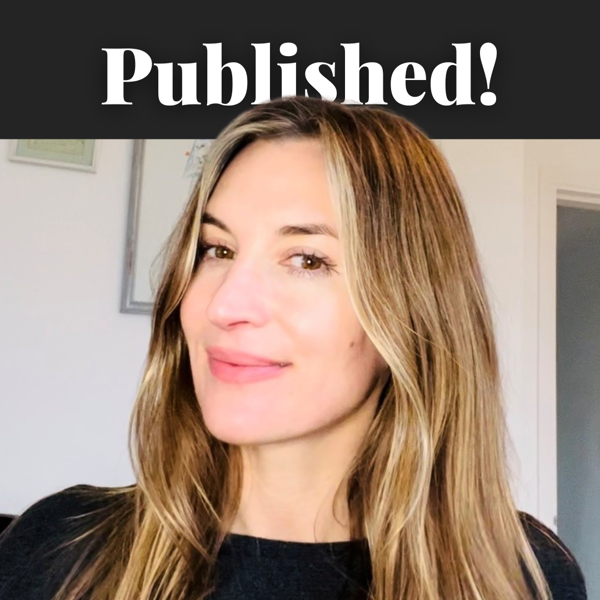Midnight. The day before the deadline. You knew you were going to be fine. You always leave things to the last minute. But this time, this time something is different. This time you are drawing a blank, and the longer you look at the unforgiving emptiness of your bare Microsoft word document, the more you realise time is running out, and you simply have… nothing.
As students we are constantly put into the precarious position of having to produce work to a deadline. However, despite our interest in the subject, our commitment to our goals, and our best intentions, it is likely that there will be times where we are sat facing a blank page trying to come up with a solution while our internal voice quietly begs for a muse to tap us on our shoulder and gently guide our fingers across the keyboard.
Simply stated, writer's block is characterised by the inability to complete a piece of written work. For those inhibited by this often-frustrating experience, writing may come in fragments of unstructured thoughts, lacking the flow necessary to produce a cohesive and captivating narrative. The author may have a sense of what they want to write. They may have even studied and planned an outline for the work. But when it comes to getting their story onto the page, they are left coming up blank. For many individuals, writers block is a temporary occurrence, one which they may have previously encountered. Such individuals may then feel equipped to wade through the discomfort in order to eventually produce the required work. For others, however, the experience can be prolonged, so much so that it may lead to the abandonment of one’s occupation.
Although often interpreted as a lack of inspiration, the mechanisms underpinning writers block may be somewhat more complex and are likely associated in some way to a fear of writing. This fear can develop based on the writer’s interpretation of the difficulty of the task, or their perception of their ability to produce the desired works. The fear is also likely to be exasperated through idealisms attached to perfectionism and high self-imposed standards, which may lead to self-criticism and an awareness of external and internal pressure. Writers may worry about the quality of their work while ruminating on the potential negative evaluation they may incur from others. However, the reality remains that if they write nothing then that too may lead to negative evaluation. Furthermore, by writing nothing they are foregoing the opportunity to develop and grow from the experience.
Strategies to Overcome Writer's Block:
Identify your block
As mentioned above, there are many reasons why someone is likely to experience writer's block (e.g., fear of writing, personal standards, perfectionism, lack of inspiration, interpretation of expectations). To complicate matters further, sometimes the reason for experiencing writers block is not that one lacks inspiration, motivation, or knowledge, but rather that one is confused as to what they should be writing about or the optimal approach to take to communicate their ideas. Taking time to explore the potential factors underlaying your experience of writer’s block is a key component when counteracting it. Ask yourself, “what am I feeling?”, “what am I thinking”, and “why do I feel blocked”. You may need to sit with this for a while to recognise what is happening for you. However, by taking these simple steps we regain control of our situation by recognising it is our own inhibitions or limitations contributing to our blockages, rather than the absence of the ‘muse’.
Routine
Sometimes we must get the ‘bad’ writing out so we can get to the ‘good stuff’. Setting aside time every day to write (even when you are feeling a lack of inspiration) is an important component to counteracting the avoidance tendencies which are likely to perpetuate the experience. Commit to a time every day, put it in your calendar and only dedicate the time you genuinely can – saying you are going to do 5 hours when you know it isn’t possible will only lead to more dissatisfaction! You are better to start small and meet your intentions, then to overcommit and come up short. Show up for your writing when you say you will, regardless of how you feel. It may be that you only write one sentence or perhaps you simply sit through the discomfort of looking at the blank page, revising brainstorms, or contents pages, but sit with it. Eventually you will start to make progress, and even one sentence a day is better than nothing!
Accept the Journey
If you find you are being inhibited by perfectionism and high standards, then I encourage you to embrace the journey of your development by accepting where you are today in relation to where you would like to be. Know that everything you write is a step towards where you hoping to head to, and that the ‘mistakes’ of today will contribute to greater efficiency and quality in the future. We often hear the saying “don’t let great be the inhibitor of good”, and this certainly applied here!
Curiosity and Exploration
Try to approach your writing from a perspective of curiosity and exploration. Where possible choose topics that excite and inspire you. Especially when working towards bigger projects there is nothing worse than feeling disenchanted with your work. Even if you are working on a topic that is somewhat underwhelming, commit to exploration by constantly asking “what am I learning from this?” AND “how can I apply this in my life?”. Doing this will help you to maintain purpose and meaning in your work.
Ritual
Try to make your writing time a special place for you to be with your thoughts. Rather than approaching writing from a “OMG I need to do this or I’m going to fail at life” perspective, instead make it special. You may wish to make a pot of your favourite tea, light candles, or take yourself to a café. Expressing gratitude for the opportunity to explore the topic, or for having the education to be able to write are also constructive ways to develop a positive relationship with your writing (although you may need to be a little less last-minute in order to really achieve this!).
The above suggestions are just that – suggestions. Everyone is different and what works for one person may or may not work for another. Try the above strategies, but also explore what works for you! Take time to brainstorm ways to work through blockages so that when they arise in the future you are armed with your tools of self-assurance to get you through.
Happy Writing!
References:
Castillo, M., 2014. Writer's block. American Journal of Neuroradiology, 35, pp.1043-1044.
Imirie, O., 2022. Wrestling with Writer's Block: Pedagogical Interventions that Work and Why. Master of Arts English Thesis. Salisbury University. Available at: https://mdsoar.org/handle/11603/24780. (Assessed: 15th June 2023).
Rahmat, N.H., 2020. Writers’ block for writers: How far is it true?. Global Journal of Social Sciences Studies, 6, pp.51-63.
Rahmat, N.H. and Haron, H., 2021. An Investigation of Avoidance Behaviour in Writing. International Journal of Education, 1391, pp.87-1054.



